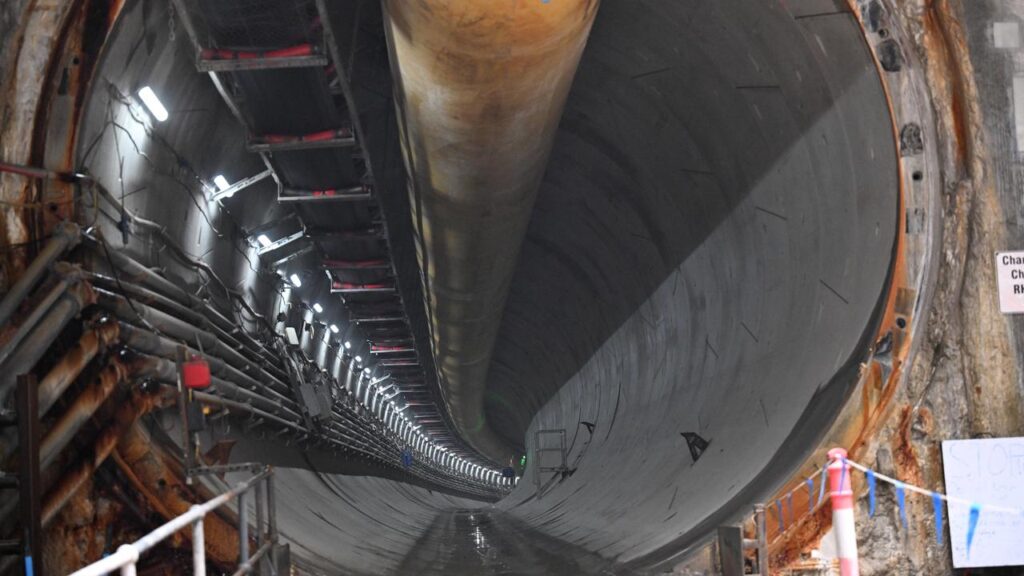Tunnel diggers are facing a ‘full-blown disease crisis’
Farid Farid |

Fine dust from massive tunnelling projects is exposing tunnellers working with heavy machinery deep underground to deadly diseases, an inquiry has been told.
Silica dust exposure can lead to workers developing silicosis – an incurable, debilitating and potentially fatal disease – as well as lung cancer.
Occupation hygienists and unions are worried sandstone often found in the Sydney basin and other states such as Queensland and Victoria are exposing workers to the dust at an even-higher rate than engineered stone.

The majority of all tunnelling in Australia occurs in NSW.
With the exception of Snowy Hydro 2.0, all tunnelling projects in NSW are funded to some extent by the state government.
A review of 14 tunnel projects in the last decade has shown that workers will develop lung cancer and silicosis cases, academic Kate Cole told a parliamentary inquiry on Friday.
“The data clearly shows that tunnel workers have been exposed to silica dust on NSW government-funded projects,” the University of Sydney researcher told the committee.
“It’s evident this issue is not managed consistently across the entire NSW tunnelling industry.”
National legal limits in place for silica dust exposure are 0.05 milligrams per cubic metre over an eight-hour work day but she cited cases of up to 10 milligrams.
Ms Cole said personal protective equipment was not enough to prevent dust particles being breathed in and more resources should be invested in high-tech ventilation equipment.
Australian Workers’ Union Assistant National Secretary Chris Donovan said companies needed to be held accountable for not prioritising the safety of workers and that regulation from authorities was sorely lacking.

“This is not an isolated non compliance issue,” the unionist told the inquiry.
“It is systemic negligence by employers like John Holland and CPB, regulators and government departments unless urgent reforms are made.
“This will and in fact it already has, to a degree, become a full blown occupational disease crisis.”
Mr Donovan said tougher enforcement by the regulator was a must.
“What’s the point of having an act of parliament if people who are going to breach the act are not scared of being prosecuted.”
CPB Contractors, which has been awarded major contracts, including the Westconnex Rozelle Interchange, M6 Motorway and Sydney Metro projects, said workers’ safety was being taken seriously.
“We were using PPE in 2013…(and) we are adopting real-time dust monitoring but we’ve got to do more work as it measures the level of dust not silica,” the company’s General Safety Manager Graeme Silvester told the committee.
A study published earlier in April, that Ms Cole co-authored, found that it was also a national concern with one in 10 tunnel workers in Queensland potentially developing silicosis.
More than 680 Victorian workers since 2018 have been affected by the disease, including 20 who died from it.
AAP